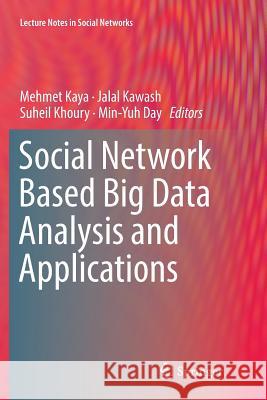Social Network Based Big Data Analysis and Applications » książka
topmenu
Social Network Based Big Data Analysis and Applications
ISBN-13: 9783030086398 / Angielski / Miękka / 2019 / 249 str.
Kategorie:
Kategorie BISAC:
Wydawca:
Springer
Seria wydawnicza:
Język:
Angielski
ISBN-13:
9783030086398
Rok wydania:
2019
Dostępne języki:
Numer serii:
000408261
Ilość stron:
249
Waga:
0.36 kg
Wymiary:
23.39 x 15.6 x 1.4
Oprawa:
Miękka
Dodatkowe informacje:
Wydanie ilustrowane











